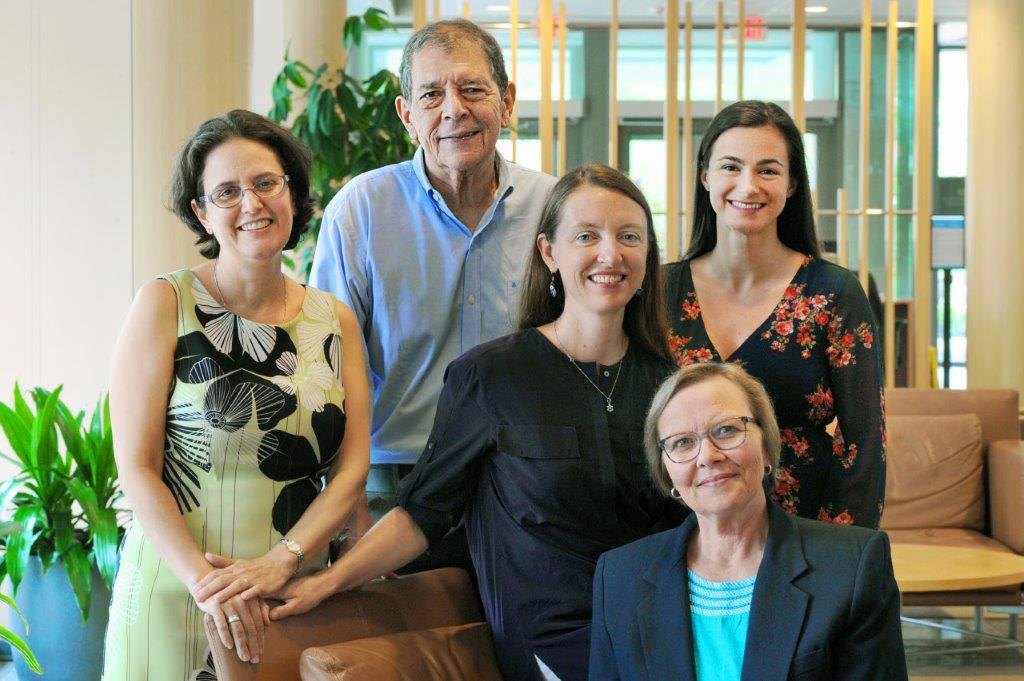The Blue Cross and Blue Shield of North Carolina Foundation awarded the program $1.55 million for its work in partnering with local governments statewide to create inclusive practices and policies for immigrant communities.

The Institute for the Study of the Americas at UNC-Chapel Hill was awarded $1.55 million from the Blue Cross and Blue Shield of North Carolina Foundation. The funding will support Building Integrated Communities, a planning and leadership initiative of the Latino Migration Project that partners with North Carolina local governments to create inclusive practices and policies for immigrant residents from Latin America and other underrepresented world regions.
An additional $2 million from the Blue Cross NC Foundation will go directly to the program’s community-based and local government partners to support their work.
Through the program, local governments and community stakeholders work together to improve communication, public safety, mobility, entrepreneurship and leadership of immigrant and refugee residents and to support resident communities’ civic engagement and leadership.
“This funding invests in cities, towns and counties seeking to expand the participation of immigrants and underrepresented communities in decision-making processes. Representative leadership is critical in improving the health and well-being of all residents,” said Hannah Gill, associate director of ISA and principal investigator.
Since 2010, the collaborative statewide program has partnered with local governments in Chapel Hill, Siler City, Winston-Salem and Sanford to create and implement action plans for improving the socioeconomic integration of newcomers.
The program helps local governments communicate with immigrant residents and facilitate language access, strengthen civic engagement and leadership, and generate strategies to address local needs. Gill and team members, as well as graduate and undergraduate students at UNC-Chapel Hill, work with the communities who are accepted into the program. Communities generally participate for two years.
“Carolina students are hands-on in many aspects of the process, doing community-engaged research, facilitating meetings and building professional communication skills,” Gill added.
Some examples of local plans include:
- Chapel Hill created multilingual hurricane preparedness videos and a language access plan.
- Sanford expanded bilingual staff and diversified local leadership councils.
- Siler City implemented a 5 percent pay raise for bilingual staff and provided language interpretation at public meetings.
- Winston-Salem created a newcomers orientation program that connects immigrants and refugees to public services and opportunities.
“The support from the Blue Cross NC Foundation represents a highly creative partnership among UNC, municipalities and philanthropy,” said Rudi Colloredo-Mansfeld, senior associate dean for social sciences and global programs in the College of Arts & Sciences. “Dr. Gill keeps finding new ways to build bridges between our global programs and communities of North Carolina, between the university and state, and within these diverse cities and towns.”
In 2019, the U.S. Mayor’s Association tapped Building Integrated Communities as one of the “top 10 programs nationwide for building inclusive and compassionate cities.”
“Supporting the health and well-being of everyone living in North Carolina is at the heart of our mission as an organization, and therefore investing in the work of Building Integrated Communities is a natural extension of this commitment,” said John Lumpkin, Blue Cross NC Foundation president. “We are excited to help grow the impact the partnerships are already having on the lives of immigrant residents living in communities across our state.”
Read a Spanish version of the article.
